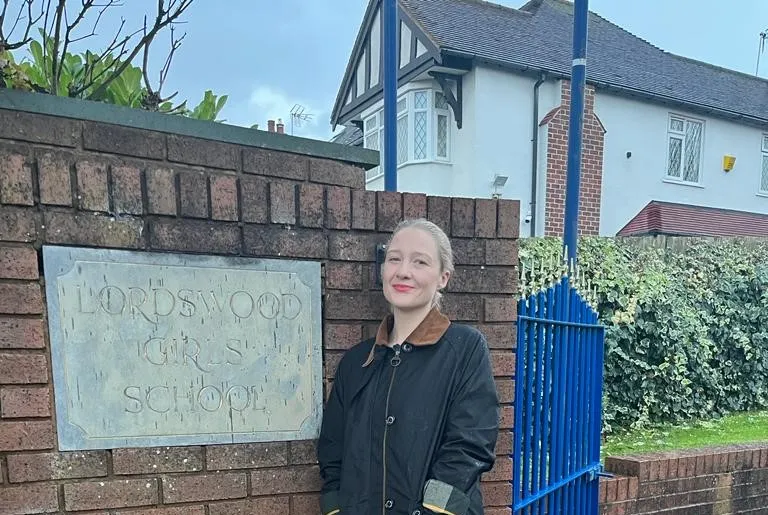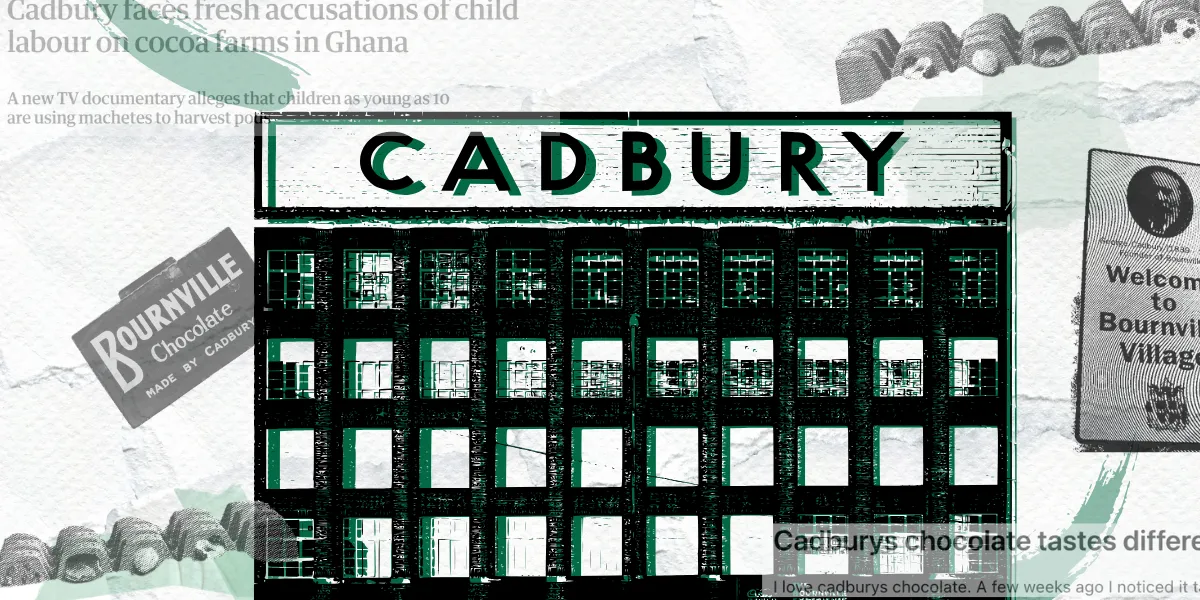Dear readers — welcome to the first-ever edition of The Dispatch! It’s Kate here, and this is a moment I’ve been thinking about for many months now, ever since I first had the idea to start this new local newspaper.
Starting this morning, we’re going to try to create something special: an outlet that truly reflects the stories of the West Midlands, celebrates our amazing people and scrutinises the institutions that shape our lives. More than anything, I want The Dispatch to champion a region that so often gets overlooked and caricatured in the national conversation.
Every morning, we’re going to send you Brum in Brief — a little round-up of important local stories around the city, plus a recommendation for something great to do or read. Then, a couple of times a week, we will send you a piece of in-depth writing or reporting that we have done. We’ve already commissioned some fantastic stories from local journalists — including features about questionable social housing companies, Birmingham’s relationship with cars and the glorious past and uncertain future of Wolverhapton’s grand old newspaper, the Express and Star.

When we announced the arrival of The Dispatch last Monday and promised to send out our first edition today, I expected to be sending this newsletter to a few hundred people. I assumed we would start small and grow from there. Amazingly, more than 1,000 of you have joined the list in just over a week, helped by wonderful coverage in the i paper and Press Gazette! As I write this, there are 1,227 Dispatchees (can we think of a better name for our herd?) on the mailing list and we’re currently growing at a rate of more than 100 a day.
Huge thanks to everyone who has shared our link so far — please use the button below to tell friends and colleagues about us via messages or on social media, or just forward this email to them and encourage them to sign up here. You can also follow us and share our tweets on Twitter/X.
We’ve also got 15 membership pledges — readers who have pledged to join up as paying members when we turn on our subscriptions in early December. Thanks to all of you — and please do join them by clicking here. We will always have lots of free journalism for you, but our main income will come from paying members, who will receive extra members-only stories and will be invited to our events. Pledging is just a way of showing that you will get behind us when the time comes.
In today’s edition, I’ve written about a conversation that comes up a lot when I speak to friends: why people leave Birmingham and why they come back. One of the big challenges for this region has been how to create enough opportunities for its young people and how to prevent the “brain drain” to London that has been such a marked feature of the British economy for decades now. Andy Street, the mayor of the West Midlands (who I met for coffee last week — we’ll publish an interview with him soon) has made attracting more good quality jobs one of his big missions since taking office in 2017. But what is he up against? I decided to contact some of the people I went to school with in a bid to find out.
Before that, our first ever Brum in Brief, which we hope will become an essential companion to your morning coffee and a useful primer on what’s going on.
Brum in Brief
💒 Stained glass windows created by 19th Century artists Edward Burne-Jones and William Morris have been restored at the Birmingham Cathedral Church of St Philip. The four windows depict scenes from the life of Christ and are considered among the most acclaimed stained glass in the world. It has taken more than 500 days to clean and repair the glass.
🐕🦺 American XL Bully dogs will be added to the list of banned dogs from February 1 2024. Several attacks have led to the ban, including one which killed 52-year-old Ian Price in Stonnall on Thursday, September 14. A demonstration calling for the ban to be scrapped was held in Birmingham city centre earlier this month.
👮 West Midlands Police are investigating after a box of live mice spray-painted in the colours of the Palestinian flag were unleashed inside a McDonalds in Nechells, Birmingham. McDonalds has faced boycott calls after providing free meals for the Israel Defence League.
🎞 It’s the last few days of the Birmingham Indian Film Festival which finishes on Friday. There are six events happening at the MAC, Cineworld, and BCU.
🎄 And Birmingham’s annual Frankfurt Christmas market opens tomorrow! The opening hours are 11am-9pm Monday to Thursday + Sunday, with a 9.30pm closing on Friday and Saturday. On Remembrance Sunday, November 12, the market will open at 1pm.
Seen a story that we should be covering or an event we should be recommending? Get in touch.
Coming back to Birmingham: My story and the challenge facing our city
There’s a well-known scene in Jonathan Coe’s novel The Rotters’ Club where the main character Benjamin Trotter, so filled with admiration for his hometown, races around 1970’s Birmingham city centre screaming “I love this city!” at the top of his lungs. It’s a love Coe has said he shares, and yet like so many well-known Brummies, the author doesn’t live in Birmingham — he lives 127 miles away in London.
Writers Lynsey Hanley and Nathalie Olah, from Chelmsley Wood and Northfield respectively, are more direct. Birmingham was a place they learned to leave. “You internalise this idea, as a Brummie,” Hanley said in 2021, “that everything about Birmingham is shit and that the only worthwhile thing you can do is get away from it.” While her fascination with the place seems to have been rekindled (she is writing a book about Birmingham and there are some beautifully observed passages about the city in her brilliant book Estates), her words get at something which I’ve noticed and — dare I admit — have felt myself.
I grew up in Birmingham and I live here now. I’ve chosen to write my first story for The Dispatch about the phenomenon of people leaving and returning to this city because that is my story. I also think it’s one of the great tasks facing us as a region in the years ahead. The challenge for any great city is to provide the best opportunities and life chances for its people, and for decades, young people have been leaving cities across the UK — drawn towards London by declining regional economies and a booming capital. I’ve often discussed with friends of my generation: why is it that so many of us left — and what is it that draws us back?

I was a bit of a sullen dreamer as a teenager, not helped by a mental health crisis at the tender age of 14, when I was a pupil at Lordswood Girls’ School in Harborne. Regardless, I remember that for me as a schoolgirl, Birmingham lacked a certain colour. Looking back, I don’t know how much that was shaped by reality and how much by the things people said about our city. Birmingham was grey cement realism, not terribly inviting for someone with an overactive imagination.
Writers and artists I looked up to were from places with a more distinct identity. I was obsessed with Amy Winehouse who epitomised north London cool. The books I was reading at the time were either by plummy-voiced writers and set in dreamy Oxford or memoirs of bohemian vagrancy set in the dirty streets of 60’s and 70’s New York. How could dreary Birmingham fit into this tableau?!
I suppose I’ve been a millennial boomerang, moving away for uni then back; then away again, and back for what was meant to be a brief stay. And then the pandemic hit and torpedoed my plans without warning. It could have been a lot worse — my family and I came out unscathed, unlike many others. But what came as a surprise to me, once the horrors of Covid had eased, was seeing my city in a new light. I got to know it as an adult, finding new people, places and communities I hadn’t known before.
I met musicians at big house parties in Balsall Heath and went to House of God — the best party in the country, which began in Birmingham 30 years ago. I moved to Bearwood and ate crispy tortilla flutes filled with crema fresca and doused in salsa. I drank pints of local ale and listened to live jazz in the Trumpet in Bilston and the Spotted Dog in Digbeth. I learned about the Pre-Raphaelite collection in the Birmingham Museum and Art Gallery, the Lunar Society, and a huge rally of 100,000 reformists who gathered in Birmingham in 1832. I wandered through Sarehole Mill, Tolkein’s inspiration for The Shire. I played Erdington rapper MIST’s EP until my phone battery ran dead.
My boyfriend, who came to Birmingham from Sheffield for uni a decade ago, laughs at me for this. As someone who chose to come here and make this place his home, he knows very well what’s great about it. Sometimes an outsider can appreciate things better — can see a city without the cynicism and baggage we have if we grew up here. The city is full of people who have come from overseas or from other parts of the country and who really love this place (2018 data by researchers at the University of Birmingham shows a healthy 50.8% of graduates stay after their studies to work here). But I think Brummies aren’t necessarily that good at shouting about our city and I’m not quite sure why that is.

“When I was younger I thought that we’d all go and do stuff and live all over the world,” Carys Evans tells me. “And a few years ago, I had this feeling of like, ‘Oh man, I haven't done any of that stuff!’”
Carys is one of my former classmates who I got in touch with in the past few weeks as I tried to work out why so many of the people I knew as teenagers left Birmingham, and why some of them came back. She says she was feeling weird about the fact she had left school years ago and was still living 20 minutes from where she grew up. “And that’s essentially when I blew my life up, to be honest,” she says.
The explosion involved splitting up with her long-term boyfriend and setting off for Spain in pursuit of a wanderlust which, until this point, was completely out of character. Speaking with Carys I am reminded of how sensible and generous she always was. It makes sense to me that she wouldn’t be flighty or dramatic, or put her desire for adventure ahead of her family.
Indeed, she tells me the reason she is inclined to stay in Birmingham is precisely this concern: “[Spain] was great and I loved it and I think I could easily live there but I just didn't want to be away from my mum,” she says. “Like, as your parents get a bit older and stuff, I just wanted to make sure that I was around.”
It’s actually not true to suggest Carys never left. After finishing at Lordswood, she went to the University of Sheffield, where she knew a lot of people from Birmingham. After graduating, she was keen to stay in the Steel City but the dice rolled in Brum’s favour when her job applications here were more successful. She recalls being in Birmingham doing some work experience when she received a call from a Sheffield number — “I was like ‘oh my god this is an interview!’” — which turned out to be a hair salon checking to see if she wanted to book an appointment.
“I remember being really desperately sad about that,” she says, “but yeah, they just didn't pick me up basically.” So Carys stayed and became a youth worker. Today she is doing a PhD in Education at the University of Birmingham which will keep her here for the next few years. “I’d happily settle here and live with my partner and have a baby,” she says.
Jaypreet Chaudri is different — she didn’t even consider staying in Brum. “No, there was like, no way,” she insists before telling me the best places to study illustration were all in the South: Brighton, Falmouth, or London. “I just wanted to go somewhere that was bigger than Birmingham. And the only place for that is London.”
So, after a foundation course at King Edward’s Stourbridge College, Jaypreet set off for the bright lights of the capital. Apart from a two-year stint teaching art in China, she has lived there ever since. She completed an online master’s in Psychology at Derby University and is now on a ‘learn and work’ course with University College London and the NHS.

Working in mental health, Jaypreet says there seems to be more opportunity in London. “I get 20% more pay than if I was working in Birmingham in the same role,” she says. And that’s a reason I’ve heard several people cite for moving to London: the opportunity to rise faster professionally and make a better living. According to the Office for National Statistics, the average worker in the West Midlands makes less than three-quarters of what an average London worker earns. As just one example, there are more than twice as many professional jobs in science, technology and engineering in the capital than in the West Midlands — and salaries are around £7,500 more.
Another classmate, Simone Gondwe, has been firmly rooted in the corporate world since she graduated from her history degree. We all know a Simone. She is the kind of person who insists on the best of everything. If she wants something — whether it’s a place at Cambridge University or a spot on the Forbes 30 Under 30 list — she is going to get it. But her office at premium drinks ‘brand builder’ company Diaego is on Oxford Street and she can’t do her commercial director job from the West Midlands.
“I really love Birmingham. If I could move back tomorrow, I would,” she tells me. “I also love how multicultural it is”. For most of the time since leaving Cambridge, Simone has lived in Milton Keynes — both are cities with a large white majority. But moving home isn’t simple. Although she and her husband, who is an accountant, have considered it, two barriers stand in their way: “One was obviously the job prospects because of the number of consumer goods companies that are based in the South rather than in Birmingham and the other one was salary, which just didn't compare,” she says.
Manchester is the second most popular destination for graduates after London according to Centre for Cities research in 2019. Three of my interviewees have lived there. This includes one Emmet Cleaver, a classmate from my sixth form days at Cadbury College in Kings Norton. Emmet studied in Sheffield and didn’t want to move to London:
“It scared me, truth be told,” he says. He moved further north after meeting his Mancunian fiancé and loves Manchester because there is so much to do. “I think that there's just plenty going on,” he tells me, insisting that while he stays in touch with what is happening in Birmingham, it always seems to him that for every new restaurant opening here there are three opening in Manchester. “Birmingham will always get a bit of a bad rep,” he adds.
Emmet briefly returned to Birmingham after studying and working in Sheffield but it wasn’t the same as he remembered. It felt like a new city, and with love calling from the north-west, he thought: why not start again somewhere actually new?
The instinct is the same for Vicky Gibbon but conversely, she knows for sure she wants to live in Birmingham again. She sends me a voice note from Paris where she works in event planning for the Olympics: “I want to live in Birmingham long term. For the short term, I just want to go and see other places and live in other cities.”
She’s lived in Sheffield, London, Glasgow and now Paris. Despite her love for Birmingham, I get the impression she isn’t convinced there are a lot of jobs here she’d like as much as her current one. She describes events as a “slowly growing industry” and although she has worked for the NEC and the Commonwealth Games, she thinks opportunities in Birmingham are more limited. “I kind of always said, I'm gonna stay in Birmingham and I want to settle down and I want to, you know, just have a bit of a chill life. But then I was like, but also I love this job.”
The question of whether Birmingham and the wider region can provide enough well-paid careers is very much still up in the air. The government thinks its ‘levelling up’ agenda, enabled by a new devolution deal with metro mayor Andy Street last Spring, will help. And then there is the question of matching up the skills required in our most promising new industries. The West Midlands tech sector — the UK’s fastest growing — is crying out for workers and the region’s politicians are desperate to retain and attract people with the right skills. “When we look at the avenues open to us here in the West Midlands to power economic growth, it’s clear that technology will play a pivotal role in shaping our future,” Street said earlier this month.
The overall picture I’ve developed from catching up with old school friends is that there is a lot of love for this city among those who grew up here and more commitment to returning than I expected. As a small sample of university-educated people, it isn’t intended to provide scientific insights but a snapshot of the Birmingham diaspora and tapestry of feelings about the city.
As someone who has accidentally re-settled here, it’s interesting to hear how some people who love the city are held back from returning because of the lack of opportunities in their fields. In the months ahead, I want to examine some of the reasons behind that: the economic factors that determine how life is lived here, and the progress that has been made to get the West Midlands moving in the right direction. We’re going to publish stories about the big challenges that local leaders face — improving transport; developing skills — and we’re going to dig into the data to uncover whether the economic benefits of Birmingham’s recent growth are spreading to the low-income communities that most need a boost.
And I would love your help with that coverage. What’s the story of your relationship with this city? And what are the stories you think we need to be telling in our first few months? The comments are open and I would love to hear from you. You can also drop me an email.








Comments